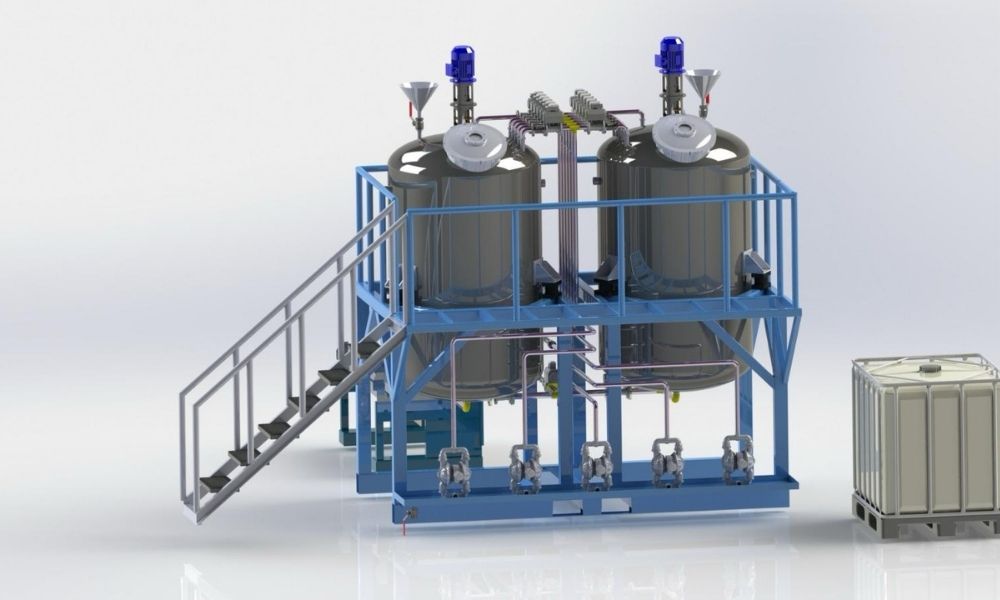
Overview
Atommek provides a full range of chemical reactors for R&D, pilot-scale testing, and industrial production. Our portfolio serves the chemical, pharmaceutical, food, and specialty chemical industries, offering solutions for safe, efficient, and scalable processes.
We combine research collaborations with state-of-the-art engineering to deliver customized reactor systems that meet the highest standards.
Atommek Reactor Types
1. Continuous Stirred-Tank Reactors (CSTR)
- Continuous operation with efficient mixing
- For chemical and pharmaceutical continuous production
- Maintains constant reaction conditions
2. High-Pressure / Autoclave Reactors
Learn More → Autoclave Reactors Page
Safe, controlled reactions under high pressure and temperature
Capacity: 1–50 L, stainless steel alloys
3. Pilot Reactors
Learn More → Pilot Reactors Page
- Small-scale, scalable reactors for R&D and process optimization
Capacity: 1–100 L, stainless steel or glass-lined
Other Types :
1. Plug Flow Reactors (PFR / Tubular Reactors)
- Ideal for continuous-flow reactions in tubular design
- Fluid flows as “plugs” with radial mixing, minimal axial mixing
- Used in pharma, chemical, and food industries
2. Packed Bed Reactors
- Fixed-bed reactors for heterogeneous catalytic reactions
- Suitable for catalyst testing, gas–solid reactions, and industrial scale-up
3. Fluidized Bed Reactors
- Provides excellent heat and mass transfer
- Common for catalytic and gas-phase reactions
- Ensures uniform reaction conditions
4. Batch Reactors
- Standard reactors for single-charge reactions
- Suitable for pharmaceutical synthesis, polymers, and specialty chemicals
- Ideal for small to medium-scale production
5. Semi-Batch Reactors
- Combines batch flexibility with continuous control
- Enables incremental addition of reactants and byproduct removal
- Optimized for exothermic reactions and high-precision formulations
Material-Based: Stainless Steel Reactors
Chemical reactors designed for efficient reactions in industrial production, using AISI 304, 316, 316L, and 316Ti stainless steel. Durable under pressures up to 16 bar and temperatures up to 300 °C, suitable for chemical, pharmaceutical, and food industries.
Learn more → Stainless Steel Reactors Page
Why Choose Atommek Reactors?
- Custom-built solutions tailored to process, material, and scale
- Advanced automation and monitoring for precise control
- Scalable from R&D to industrial production
- Technical support, training, and installation included
- Collaborations with Gebze University and Reactan Startup for research-backed solutions
FAQ – Chemical Reactors
Q1: What is a Reactor?
A chemical reactor is a system designed to perform controlled chemical reactions efficiently in industrial production, ensuring process control, high reaction efficiency, and safe operation.
Q2: How Does a Reactor Work?
Raw materials are combined, and heating, cooling, and mixing are applied to achieve desired reactions. Heat transfer is via jacketed systems, coils, or external exchangers. Mass transfer uses impellers, turbines, or magnetic stirrers; diffusers may be used for gas-liquid reactions.
Q3: What is a Chemical Reactor Used For?
- Industrial chemical production (polymers, specialty chemicals, alkyds, PVA, etc.)
- Pharmaceutical formulations and R&D
- Food and beverage processing
- Catalyst testing and process scale-up
Q4: What Materials are Used in Atommek Reactors?
- Stainless steel alloys (AISI 304, 316, 316L, 316Ti)
- Glass-lined steel for corrosive reactions
Q5: How are Heat and Mass Transfer Achieved?
- Heat: Jacketed systems, internal coils, external heat exchangers, temperature-controlled fluids
- Mass: Impellers, turbines, magnetic stirrers, diffusers for gas-liquid reactions
Q6: What Factors Affect Reactor Pricing?
- Reactor type, capacity, material, heating/cooling system, pressure rating, automation, imported vs. domestic production
Q7: Are Atommek Reactors Compliant with Safety Standards?
Yes, designed according to international standards (GMP, ATEX) with optional speed control, load cell weighing, and mechanical seal options.